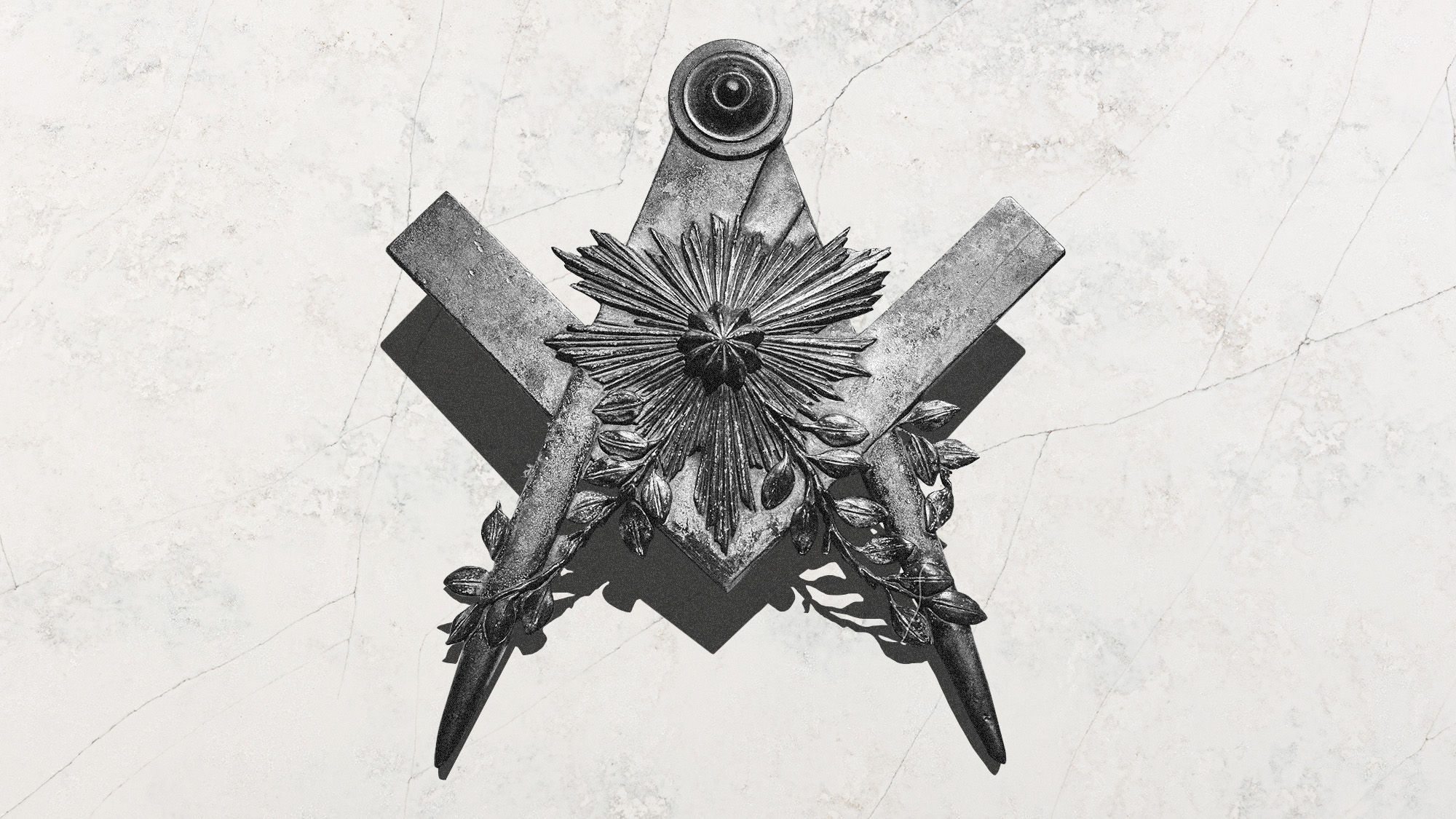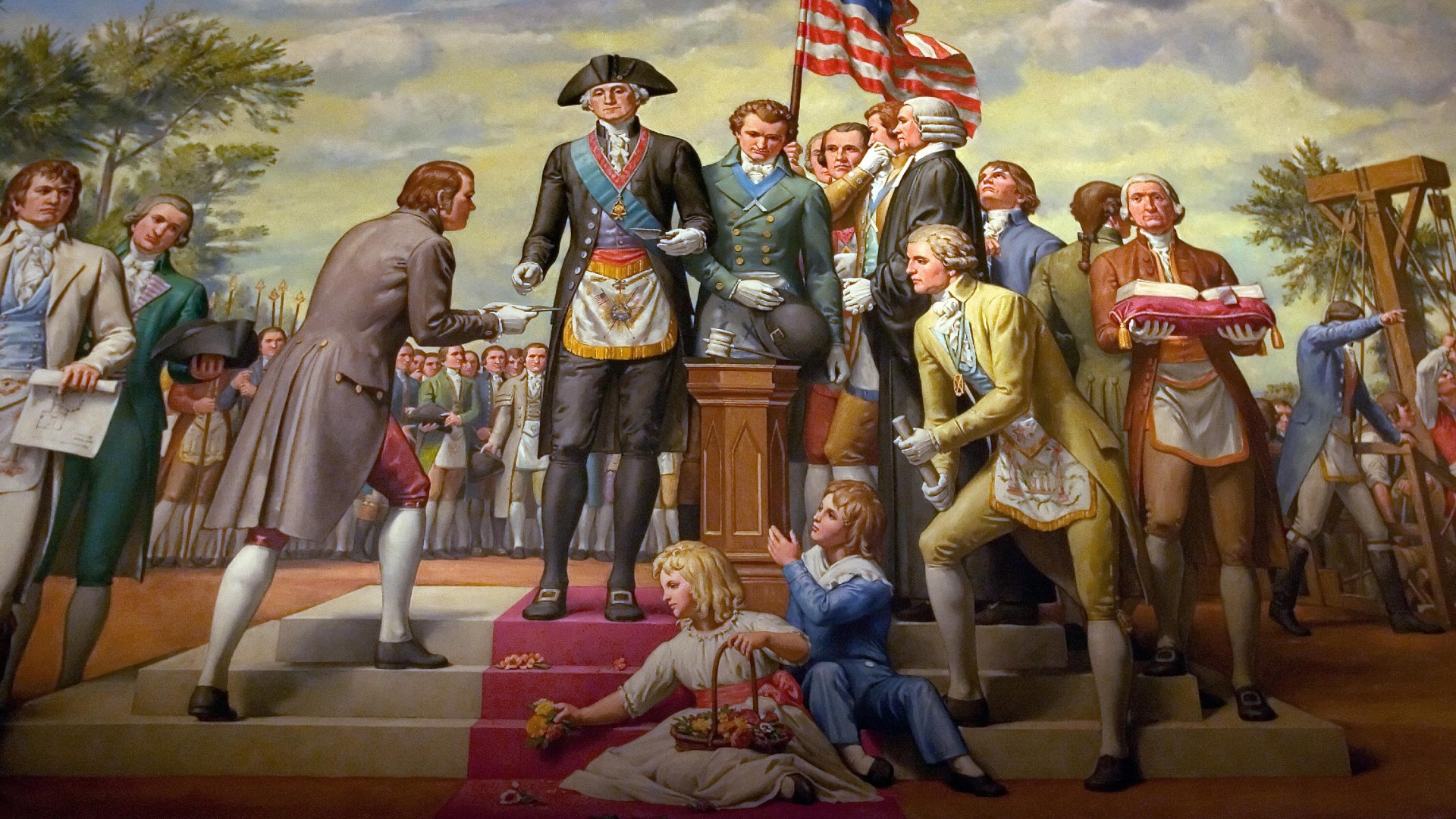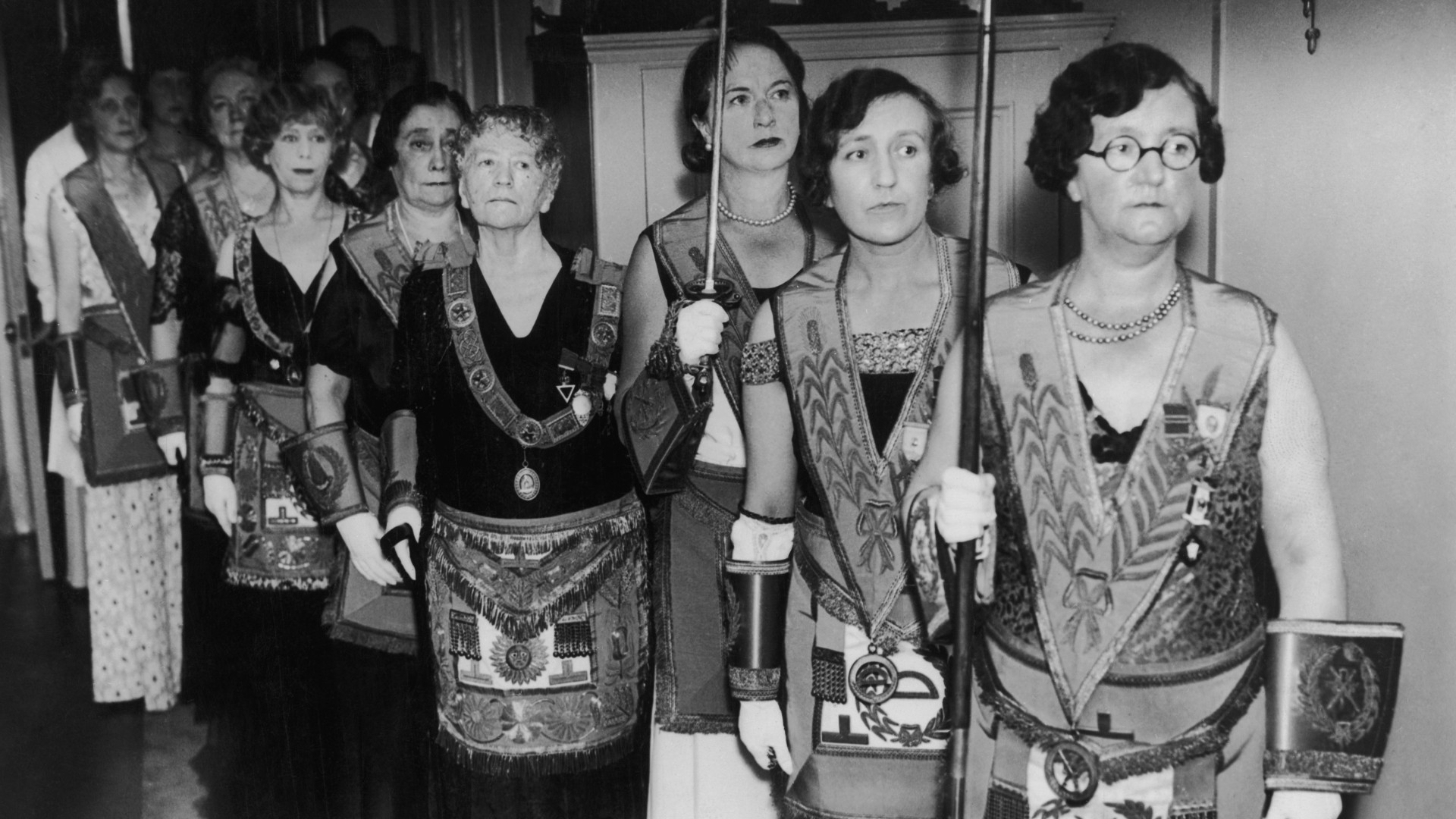Who are the Freemasons?
The secret rituals of freemasonry have long inspired conspiracy theories about its global power and influence

A free daily email with the biggest news stories of the day – and the best features from TheWeek.com
You are now subscribed
Your newsletter sign-up was successful
Secret societies and organisations have long fascinated outsiders, but few have attracted as much intrigue and speculation throughout history as the Freemasons.
It is the "world's largest secret society" and centuries old, said National Geographic. The group's unusual rituals and practices have been one of the key driving forces behind external curiosity, leading to rumours and conspiracy theories about the extent of its influence in society.
Its high-profile members, including celebrities, prominent businessmen and politicians, have triggered many a conspiracy theory that the "group pulls the strings of international power and finance and is responsible for high-profile murders". There have even been stories of a deep connection between Freemasons and the Illuminati.
The Week
Escape your echo chamber. Get the facts behind the news, plus analysis from multiple perspectives.

Sign up for The Week's Free Newsletters
From our morning news briefing to a weekly Good News Newsletter, get the best of The Week delivered directly to your inbox.
From our morning news briefing to a weekly Good News Newsletter, get the best of The Week delivered directly to your inbox.
Who exactly are the Freemasons?
Freemasonry has its origins in medieval stonemason guilds, from which it takes its name. These stonemasons would work "often far from home", in England and Europe, building intricate churches that could take "months, even years" to complete, said the BBC.
To be sure the strangers working alongside them "knew the trade and could be trusted", the stonemasons formed guilds and could identify other members with a "code known by insiders only", often a secret handshake.
Although there were steps towards forming the first national movement of freemasons in Scotland in the 16th century, it wasn't until the United Grand Lodge of England (UGLE) was formed in 1717 that the Freemasons became a more unified association.
By this time, the Freemasons had started to become as much a fraternal group as a workers' guild, holding meetings in "lodges" and allowing members of other professions to join. As the group expanded, so did "its list of secret rituals and ceremonies, and its membership requirements", adding to the secretive aura that surrounds it, said National Geographic.
A free daily email with the biggest news stories of the day – and the best features from TheWeek.com
Today, there are a reported six million Freemasons worldwide. According to the UGLE, there are more than 175,000 in England and Wales, and another 47,000 in Scotland and Ireland.
Membership is much more simple than it was in times gone by. The majority of lodges practise what they refer to as Anglo-American or "regular" freemasonry, open to those over 18, of "good repute", who profess a belief in a "Supreme Being" of any denomination.
The four core principles of freemasonry are integrity (meaning high moral standards), friendship, respect and service, or charity. The UGLE says it donates £50m per year to "charitable causes".

A mural depicts George Washington in full Masonic regalia
What happens inside a Masonic lodge?
While Freemasons meet regularly, as members of any other organisation might, it is the ceremonial rituals that have garnered a reputation for their unique traditions.
Each lodge "meets four times a year officially to welcome new members" and what happens remains a "closely guarded secret", said the BBC. But it is known that new members progress though three "degrees" of membership, beginning with Entered Apprentice, then to Fellow Craft, and finally to Master Mason. The final stage involves a lot of "close questioning", and is where the phrase "giving someone the third degree" comes from.
Masonic rituals also feature aprons, worn "because of the supposed evolution of freemasonry from stonemasons", and symbols depicting masonry tools, such as the square, the compass, as well as the famous all-seeing Eye of Providence.
Who are the most famous Freemasons?
There have been too many famous Freemasons to mention, but they range from historically significant figures such as George Washington, Winston Churchill and Wolfgang Amadeus Mozart, to actors and entertainers such as Peter Sellers, Clark Gable and Richard Pryor.
According to the Museum of Freemasonry, 15 US presidents in history have been Freemasons, and two members of the UK royal family, King George IV and Prince Philip, have been publicly confirmed as members.
Can women join?
For 200 years, Freemasonry was exclusively for men. The first female lodge in the UK opened in 1908, and there are now two lodges in England, with around 4,700 members. However, Freemason lodges remain single-sex, with men unable to join the female chapters and vice versa.
The UGLE has also stated that any male member undergoing gender reassignment is "not required to resign from the Craft", while someone who has reassigned their gender to male will have their application "processed in the same way as for any other male candidate".

The consecration of the first women's masonic temple at St Ermins, Westminster, in 1933
Are Freemasons connected to the Illuminati?
The Illuminati was a secret group that emerged in Bavaria in the 1770s. They wanted to educate their members in "reason, philanthropy and other secular values" in order to "influence political decisions when they came to power", said Vox.
They recruited "heavily" through Freemason lodges in Europe and used similar symbols, such as the Eye of Providence, causing confusion between the two groups, said History.
The two groups are not connected, but their secretive and unusual rituals, as well as their ability to attract high-powered and influential people, have led to conspiracy theories that these "shadowy cabals" secretly "control the world", said Vox.
In reality, the Illuminati lasted little more than a decade, but the myths around them and the association made with the Freemasons have left the latter the subject of similar theories of world domination.
Richard Windsor is a freelance writer for The Week Digital. He began his journalism career writing about politics and sport while studying at the University of Southampton. He then worked across various football publications before specialising in cycling for almost nine years, covering major races including the Tour de France and interviewing some of the sport’s top riders. He led Cycling Weekly’s digital platforms as editor for seven of those years, helping to transform the publication into the UK’s largest cycling website. He now works as a freelance writer, editor and consultant.